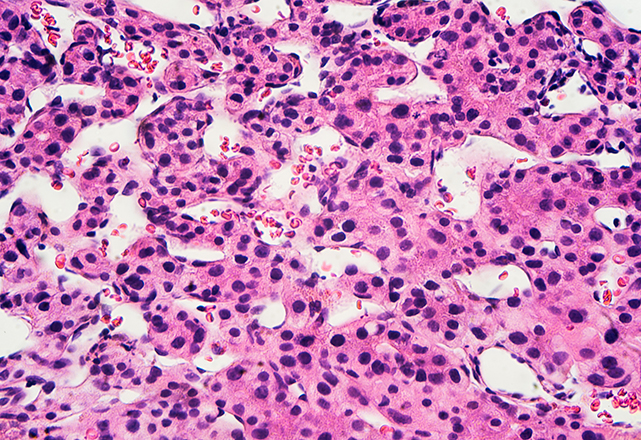Organoid Based Precision Medicine
 Cells from an organoid model observed under a microscope.
Cells from an organoid model observed under a microscope.At Johns Hopkins, our research team consists of a diverse group of experts who investigate complex questions, reimagine cancer research and revolutionize patient care. Patient-derived cancer model systems, such as organoids, allow us to discover novel strategies to identify, study and treat cancer. Our team uses organoid models in the context of clinically-relevant molecular diagnostics which can help enhance care for patients.
Each patient’s tumor is studied to identify the best medication for their individual cancer. After an operation, a model of a patient’s cancer is grown in a laboratory as a tumor “organoid” for molecular study and precision testing. The testing for each patient’s tumor will include direct sensitivity analysis for the medication used in traditional therapy, sensitivity analysis for radiotherapeutic approaches, genetic testing to identify key cancer susceptibilities (such as BRCA mutations) and next-generation testing using RNA-sequence to subtype each patient’s cancer. A patient’s tumor can also be tested for susceptibility against less commonly used chemotherapies or therapies in the clinical trials pipeline. When the patient is ready for chemotherapy, data gathered from these molecular studies will be discussed at a multidisciplinary meeting of clinician-scientists and the specialized treatment for each patient can be selected.
